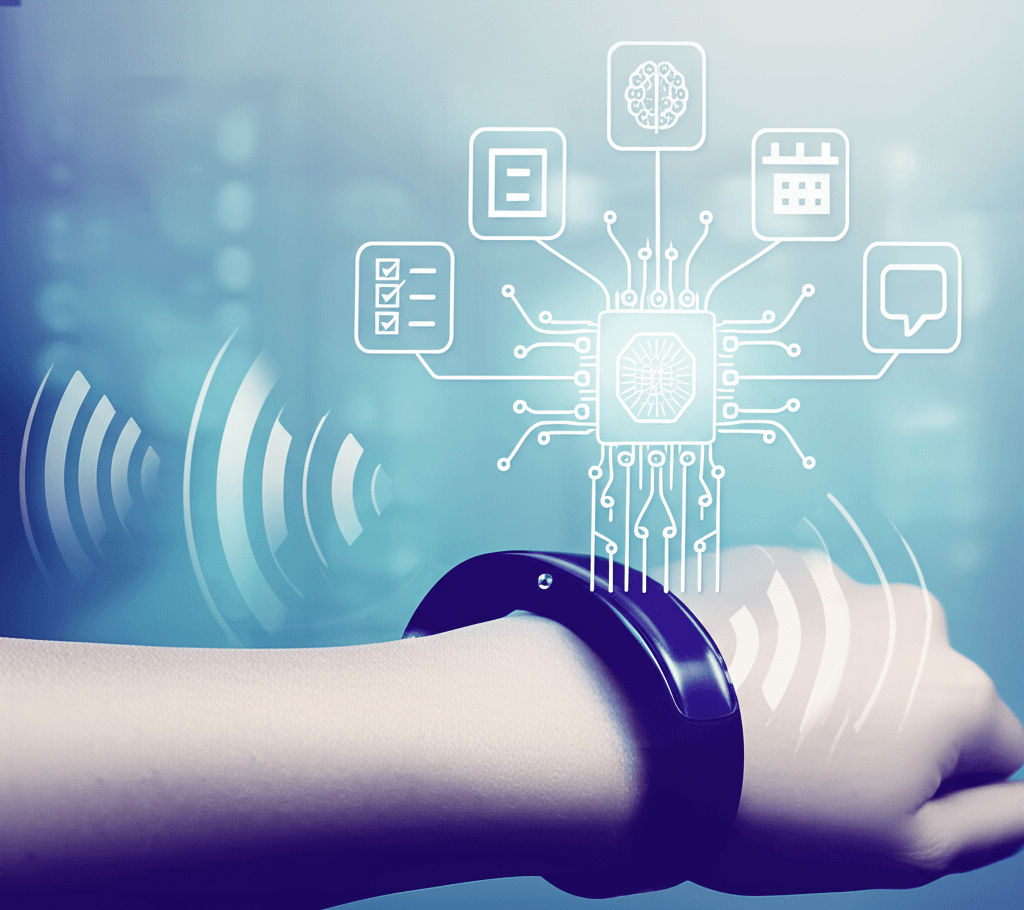Amazon Bets Big on Personal AI with Wearable Life-Logging Acquisition
Amazon bets on Bee's always-on AI wristband for deeply personal insights, navigating privacy concerns for a new AI future.
July 23, 2025

Amazon is set to acquire Bee, a San Francisco-based startup that has developed an AI-powered wristband capable of recording, transcribing, and summarizing daily conversations.[1][2][3] The deal, which has been confirmed but is not yet finalized, signals a significant strategic move for the tech giant, expanding its portfolio of wearable devices and deepening its investment in personalized artificial intelligence.[1][2][4] While the financial terms of the acquisition have not been disclosed, Bee's employees have received offers to join Amazon, suggesting a full integration of the startup's talent and technology.[5][6][7] The acquisition places Amazon in the growing and competitive market of AI-powered consumer hardware, pitting it against other major tech players also exploring personal AI assistants.[5][4]
Founded in 2022, Bee quickly garnered attention for its minimalist, screen-free wearable designed for "ambient computing."[1] The device, priced at $49.99 with a $19 monthly subscription, uses dual microphones with noise-filtering technology to continuously listen to the user's surroundings.[8][9][6] The core functionality of the AI is to process these conversations and transform them into practical outputs such as summaries, to-do lists, and reminders, all accessible through a companion mobile app.[8][9][10] To enrich its personalized insights, the device can be granted access to a user's emails, contacts, calendar, and location data.[9][3] Bee's stated mission is to create a "truly personal" AI that understands and enhances a user's life by learning their patterns and preferences over time.[5][10] The wristband supports up to 40 languages and features a battery life of over 160 hours.[9][10] The startup has also developed an app for the Apple Watch with similar functionality.[8][6]
This acquisition marks a renewed push by Amazon into the wearables sector after discontinuing its Halo line of health and fitness trackers in 2023.[1][4] While Amazon still sells its Echo smart glasses with integrated Alexa, the Bee wristband represents a shift towards a more passive and continuously learning form of AI assistance.[2][6] The startup's team is expected to join the division led by Amazon's devices chief, Panos Panay, indicating a tight integration with Amazon's existing hardware strategy.[2][4] The move aligns with a broader industry trend of developing personal AI hardware, as seen with OpenAI's acquisition of a device startup and Meta's ongoing work in the space.[1][5] By acquiring Bee, Amazon is betting on a future where AI moves from stationary smart speakers to mobile, ever-present companions.[6]
The introduction of an always-on listening device from a major tech corporation like Amazon inevitably raises significant privacy and security questions.[8] Bee has stated that it does not store audio recordings and that they are not used for training its AI models.[5][6] The company's privacy policy also notes that users can delete their data at any time.[8][6] The wristband includes a mute button with an LED indicator to give users a degree of control over when it is recording.[3][10] An Amazon spokesperson has affirmed that the company's commitment to customer privacy and control will apply to Bee's products.[5][3] However, the device's ability to integrate with extensive personal data like emails and calendars to create a detailed, searchable log of a user's life will likely be a point of scrutiny.[9][11] Some early reviews of the Bee device also noted issues with its accuracy, as it sometimes misinterpreted background noise from media as real-life conversations, raising questions about the reliability of its AI-generated insights.[11] The company had been working on features to set boundaries based on topic or location and to process more AI tasks on the device itself to minimize cloud dependency and enhance privacy, but the future of these initiatives under Amazon's ownership is unclear.[8]
Ultimately, Amazon's acquisition of Bee underscores a strategic pivot towards more deeply integrated and personalized AI experiences. By bringing a life-logging wearable into its ecosystem, Amazon is positioning itself at the forefront of the next wave of artificial intelligence, where the technology is not just a tool to be commanded but a constant companion that learns and anticipates needs. The success of this venture will hinge not only on the technological prowess of the integrated device but also on Amazon's ability to navigate the complex landscape of user trust and data privacy. The deal signifies a clear ambition to make AI an ambient, integral part of daily life, moving beyond the home and into every conversation and interaction.